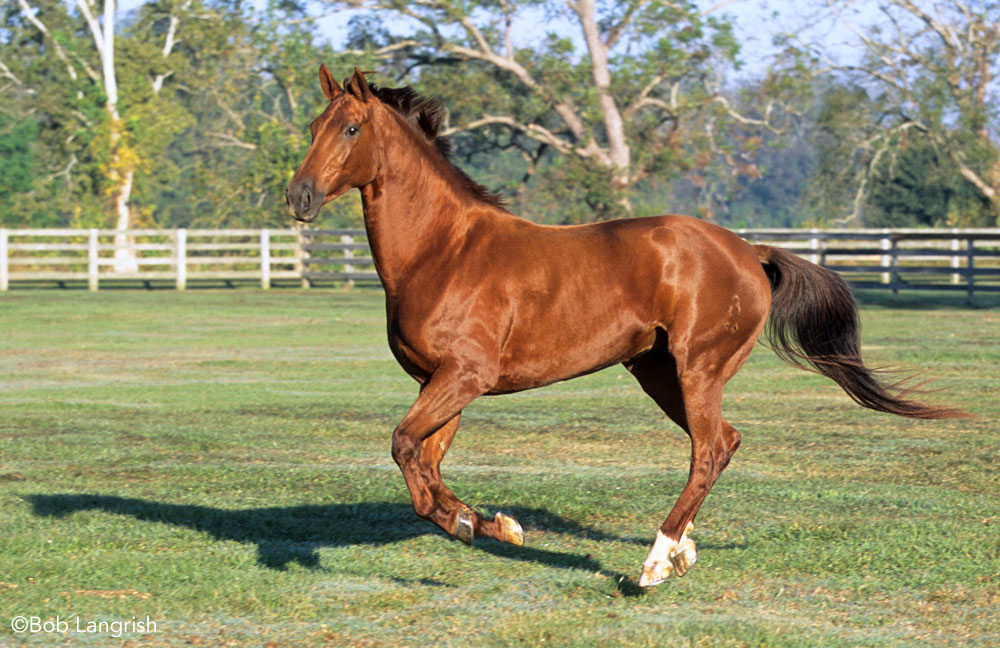The Oldenburg
Oldenburg Horse Breed History
The Oldenburg was created in the 17th Century through the endeavors of Count Johann XVI von Oldenburg and Count Anton Gunther von Oldenburg to create a grand carriage horse. Small breeding farms throughout the provinces of Oldenburg and East Friesland were developed.


These original Oldenburgs were based on native Friesian stock, with Turkish, Neopolitan, Spanish, Danish and Andalusian influences.
In 1950, the objectives of cavalry gave way to those of sport. Until this time Thoroughbred blood was used sporadically, but in 1959 crossings to athletic Thoroughbred stallions began in earnest. By allowing other breeds into their studbook, the Oldenburg Verband was able to create a superb sporthorse. This policy remains today, and breeders can choose the best stallions as long as they are approved and listed in the Oldenburg studbooks. Breeds include Trakehner, Westphalian, Holsteiner and Hanoverian.
Oldenburg Horse Characteristics
Average height is 16.2 to 17 hands high; over 17 hands high is considered abnormal. Colors are bay, black, brown, gray and chestnut. Oldenburgs are known for their elastic gaits. They are branded on the left side flank with a large O topped with ducal coronet.
For More Information:
- Verband de Zuchter des Oldenburger Pferdes, www.oldenburger-pferde.com;
- Oldenburg Horse Breeders Society, www.oldenburghorse.com
Further Reading
This breed profile was originally published on December 15, 2006.
Recent Posts
2025 FEI Basel World Cup Finals Hands Reins to Fort Worth 2026
As U.S. athletes look back on valuable experience gained at the 2025 FEI World Cup Finals in Switzerland, the next…
How to Clean a Horse’s Sheath
If you’ve never cleaned a horse’s sheath, you probably have questions. First and foremost, is it really necessary? And more…
All Three Equestrian Sports Receive Final Confirmation for the LA 2028 Olympic Games
After a nail-biting two years of speculation about the inclusion of equestrian sports in the next Olympic Games, it was…
ASPCA Right Horse Adoptable Horse of the Week: Xanthus
Welcome to Horse Illustrated’s weekly installment of the Right Horse Adoptable Horse of the Week, offered in partnership with the…
Be Your Horse’s Joint Health Champion
Equine arthritis can affect horses of all disciplines and ages, and early intervention is crucial for maintaining comfort and performance.…
Tamie Smith: Taking It To The Next Level
Mother, grandmother, and winning 5* eventing rider—these three titles don’t typically go together. However, Tamie Smith, 49, is all of…